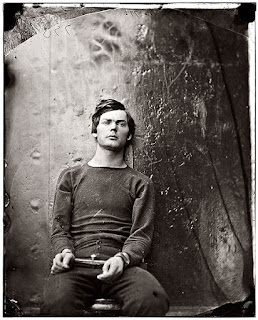Shortly before the end of her life, shortly before the moment when I looked through her pictures and discovered the Winter Garden Photograph, my mother was weak, very weak. I lived in her weakness (it was impossible for me to participate in a world of strength, to go out in the evenings; all social life appalled me). During her illness, I nursed her, held the bowl of tea she liked because it was easier to drink from than a cup; she had become my little girl, uniting for me with that essential child she was in her first photograph. In Brecht, by a reversal I used to admire a good deal, it is the son who (politically) educates the mother; yet I never educated my mother, never converted her to anything at all; in a sense I never "spoke" to her, never "discoursed" in her presence, for her; we supposed, without saying anything of the kind to each other, that the frivolous insignificance of language, the suspension of images must be the very space of love, its music. Ultimately I experienced her, strong as she had been, my inner law, as my feminine child. Which was my way of resolving Death. If so, as so many philosophers have said,
Death is the harsh victory of the race, if the particular dies for the satisfaction of the universal, if after having been reproduced as other than himself, I who had not procreated, I had, in her very illness, engendered my mother. Once she was dead I no longer had any reason to attune myself to the progress of the superior Life Force (the race, the species). My particularity could never again universalize itself (unless utopically, by writing, whose project henceforth would become the unique goal of my life). From now on I could do no more than await my total, undialectical death.
-
Roland Barthes


